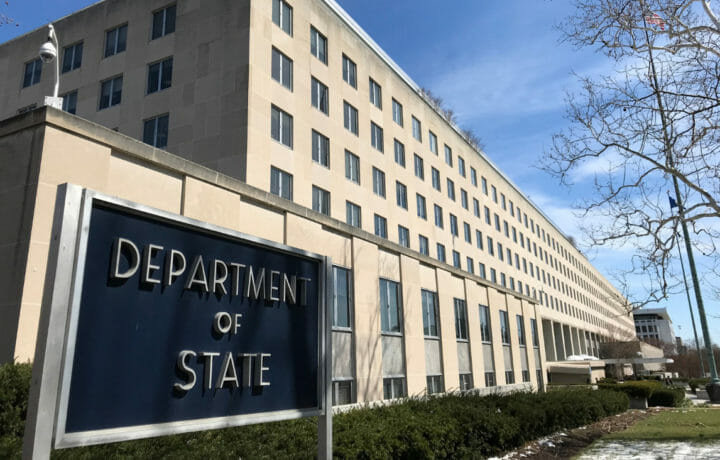Today, the United States Department of State has ordered 12 Russian officials associated with the Russian Permanent Mission to the United Nations to get out of New York.
The statement, attributed to U.S. Mission to the United Nations Spokesperson Olivia Dalton, noted that the individuals “have abused their privileges of residency in the United States by engaging in espionage activities that are adverse to our national security.” She added, “This action has been in development for several months.”
The statement indicates that the United States counterintelligence apparatus has successfully identified resident intelligence officers of the GRU/SVR/FSB. Of course, the Russian Ambassador to the United Nations protested the action in a news conference where he said the “diplomats” were given until March 7 to depart the United States. He continued how he viewed this action as “another hostile” measure from the United States.
This PNG action follows on the heels of the order for the Russian embassy’s number two diplomat to depart the United States in direct response to Russia’s order for the number two at the U.S. Embassy Moscow to depart.
If history is a barometer of what is to come, additional expulsion from within the EU and NATO countries can be expected, as the west turns out the lights on Russia’s ability to conduct espionage.
When we look back, we see that Russia has never taken its foot off the gas when it comes to conducting espionage. However, in the last year, NATO has expelled a number of Russian intelligence officers, which resulted in the closure of the Russian delegation’s office at NATO and NATO’s office in Moscow.
In 2017, as a result of Russian ordering for the reduction of local staff at the U.S. Embassy Moscow, the administration ordered the closure of the Russian consulate in San Francisco. This removed one of Russia’s most lucrative intelligence platforms, both HUMINT and SIGINT given its proximity to Silicon Valley, sending it’s personnel packing back to Russia.
Then we have the global reaction to the use of deadly chemicals in the attempted assassination of a former Russian intelligence officer Sergei Skripal and his daughter in the U.K, which sent nearly 100 intelligence officers back to Moscow across the EU and from the United States in March 2018. This action also resulted in the closure of the Russian consulate in Seattle.
Separately, in late February, the United States has ordered a voluntary departure from the U.S. Embassy Moscow in light of the unprovoked invasion of Ukraine and the escalation of hostilities. Authorized to leave are dependents and non-emergency personnel. In addition, the Department’s Bureau of Diplomatic Security has urged all U.S. citizens in Russia to depart via commercial means.




